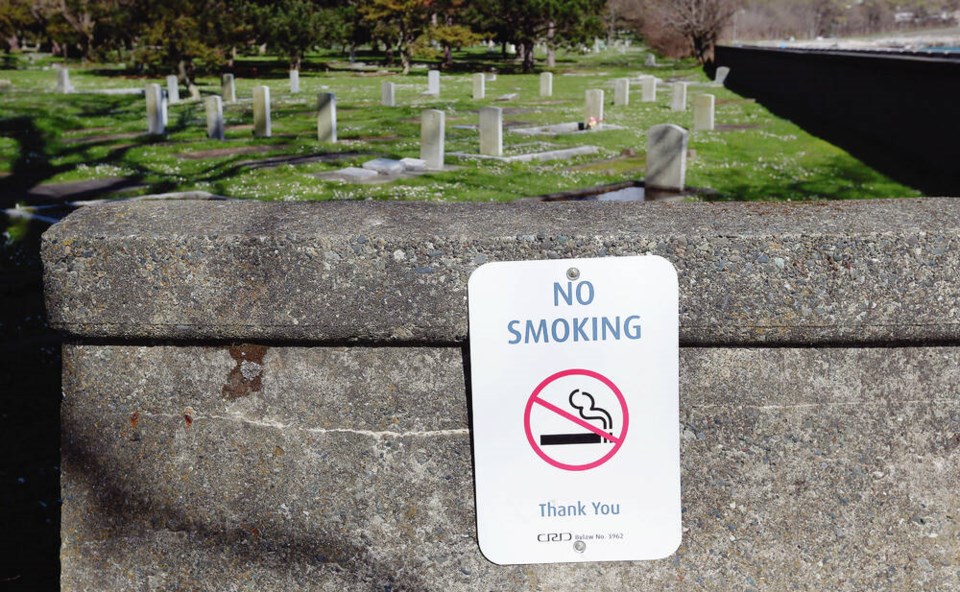I was on a plane this week, and in front of me was a big sticker that read “no smoking.” With my phone set to airplane mode, I sat and wondered when airlines would eventually remove the stickers.
This isn’t the 1970s or 1980s, and smoking is no longer an acceptable act in any public spaces — even parks and beaches are smoke-free.
The likelihood of someone lighting up on a plane, in my opinion, is very low, possibly even nil.
I realize that larger commercial planes have the no-smoking symbol above each seat next to the seatbelt light. It would be costly to replace the interior moulding to remove the symbol.
Eventually, airlines will drop the no-smoking icon.
I recently attended a presentation by Dr. Jody Carrington, a psychologist, author and public speaker who quoted U.S. Rear Admiral Grace Murray Hopper: “The most damaging phrase in the language is ‘We’ve always done it this way.’ ”
I agree. I am a forward-looking, big-picture thinker. If we do what we’ve always done there will be no advancement.
Also, my mind wanders to the traditional teaching: “Remember where you come from”.
I think we can use both in unison, with a far more comprehensive and balanced response.
An example of this is how territorial acknowledgments are included in meetings and events.
These acknowledgments are a standard component on agendas, and at one point they weren’t.
When they began — and maybe even now — it felt uncomfortable. We often feel nervous or uncomfortable when we do something for the first time, particularly when it’s in front of other people.
“Remember where you came from” is the reason why acknowledgments are needed. This isn’t about pointing fingers or shaming people — it’s history.
Carrington spoke about territorial acknowledgments and how an acknowledgment is not an apology. It’s acknowledging the land we are on and the people who have been connected to the land for thousands of years.
I love a good analogy, and Carrington offered a wise one on the importance of acknowledgment and what it actually means.
She set the stage by explaining how people were at a funeral to pay respects and honour a man named George, who was loved by all in the room. Then someone stands up to speak and calls him “Jorge.”
People in the audience say: “His name is George.”
The speaker responds: “Yeah Jorge, same thing, it’s how I say it.”
In my heart, I believe the territorial acknowledgment is not for the person saying it. It’s a sign of respect so someone in the audience, or sitting around the table, will feel heard and seen.
Calling George “Jorge” doesn’t make people feel seen, it makes them less than seen. It sends the message that George didn’t really matter.
Our society continues to evolve, and things that were once acceptable will one day be shunned. The first person who said we shouldn’t smoke on airplanes probably faced a lot of pushback.
I know there are people today who see a territorial acknowledgment as a formality and nothing more.
The older I get, the more excited I get about how social norms and priorities change. We can do our best to look forward, and backwards, as we tread carefully forward.
>>> To comment on this article, write a letter to the editor: [email protected]



